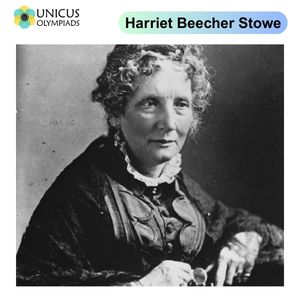

Throughout history, certain authors have left an indelible mark on the world through their writing. Their works have not only shaped literature but also influenced society, politics, and culture. Authors like Anne Frank and George Orwell are among those whose words have resonated deeply across generations, changing the way we think about history, freedom, human rights, and society. Below, we explore several authors whose works have had a profound impact on the world.
Anne Frank (1929-1945) was a Jewish girl who went into hiding with her family during the Holocaust to escape Nazi persecution. Her diary, The Diary of a Young Girl, has become one of the most famous accounts of the Jewish experience during World War II.

George Orwell (1903-1950) was an English writer and journalist best known for his dystopian novels 1984 and Animal Farm. His works often explored themes of totalitarianism, political corruption, and social injustice.

Harriet Beecher Stowe (1811-1896) was an American author best known for her novel Uncle Tom's Cabin, which played a pivotal role in changing attitudes toward slavery in the United States.

Maya Angelou (1928-2014) was an American poet, memoirist, and civil rights activist, best known for her series of autobiographies, particularly I Know Why the Caged Bird Sings.

William Shakespeare (1564-1616) is often considered the greatest writer in the English language. His works, including plays, sonnets, and poems, have had a profound and lasting influence on English literature and Western culture.

Chinua Achebe (1930-2013) was a Nigerian novelist, poet, professor, and critic, best known for his novel Things Fall Apart, which is one of the most widely read African novels.

Franz Kafka (1883-1924) was a German-speaking Bohemian writer known for his surreal and existential works, including The Metamorphosis and The Trial.

Virginia Woolf (1882-1941) was an English writer and modernist who is best known for her works Mrs Dalloway, To the Lighthouse, and Orlando.

Albert Camus (1913-1960) was a French philosopher, writer, and journalist, best known for his novels The Stranger and The Myth of Sisyphus.
